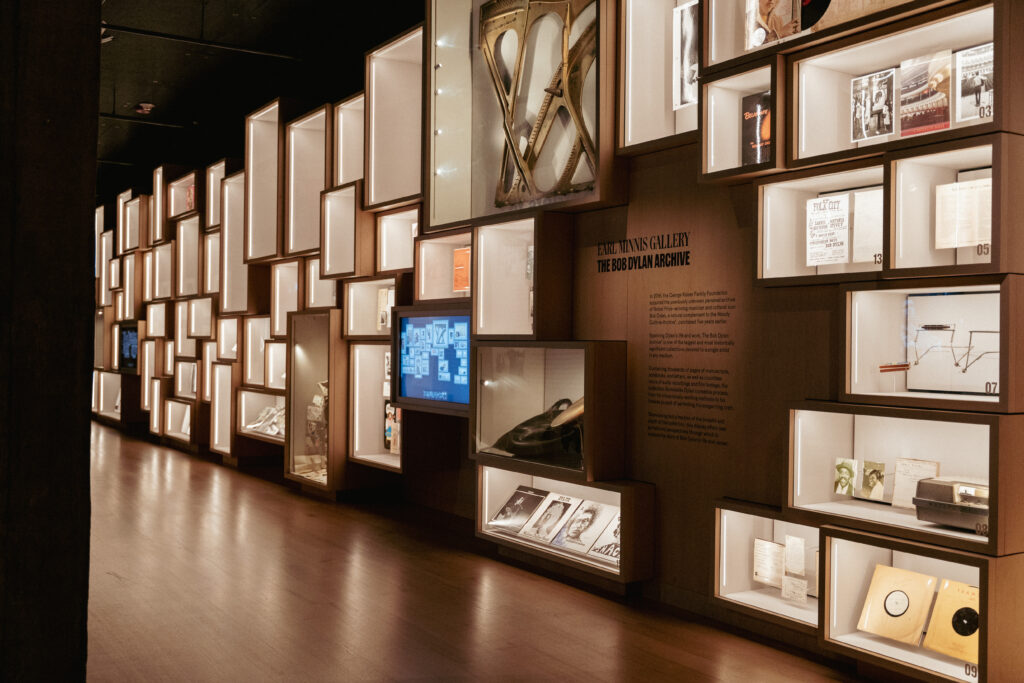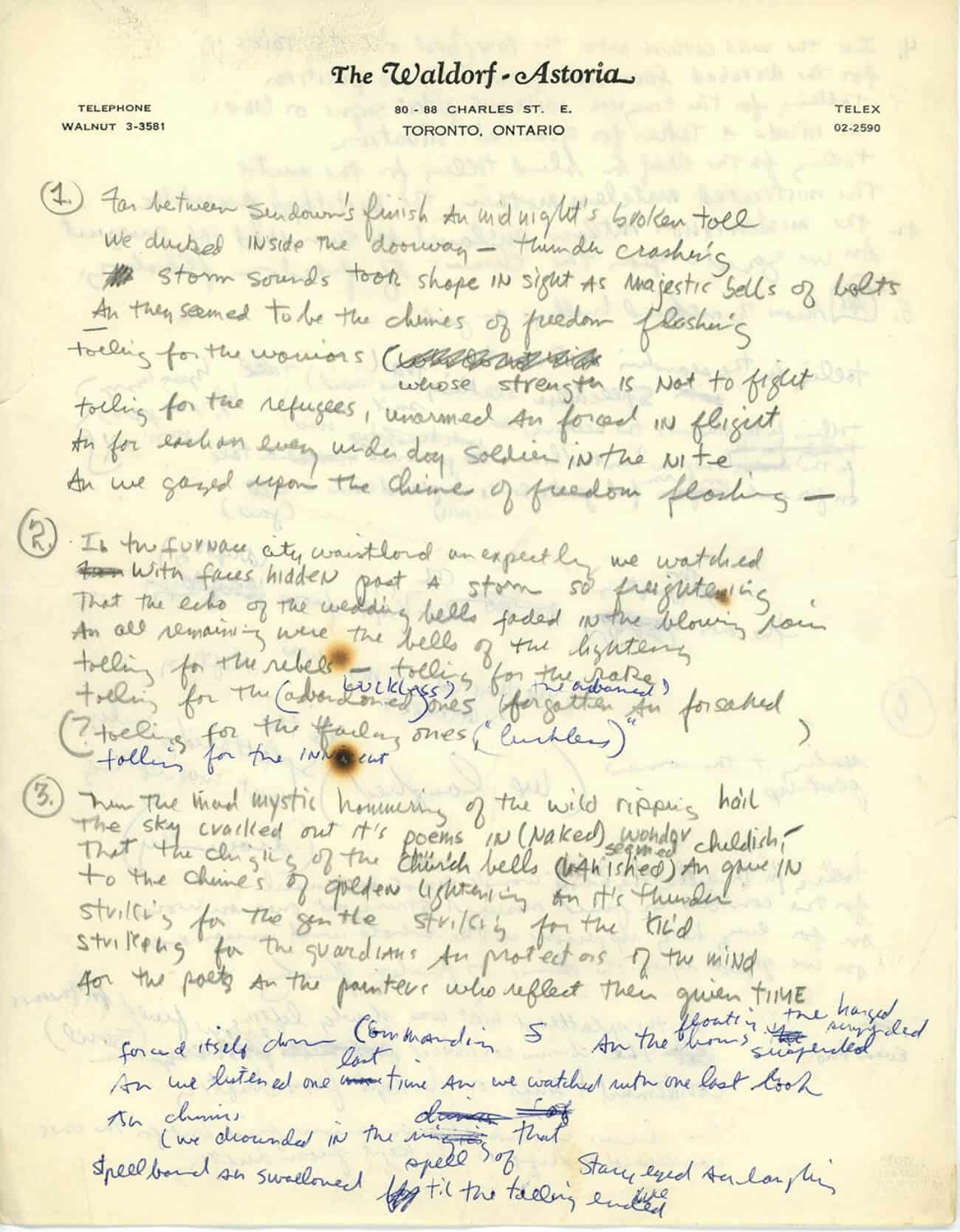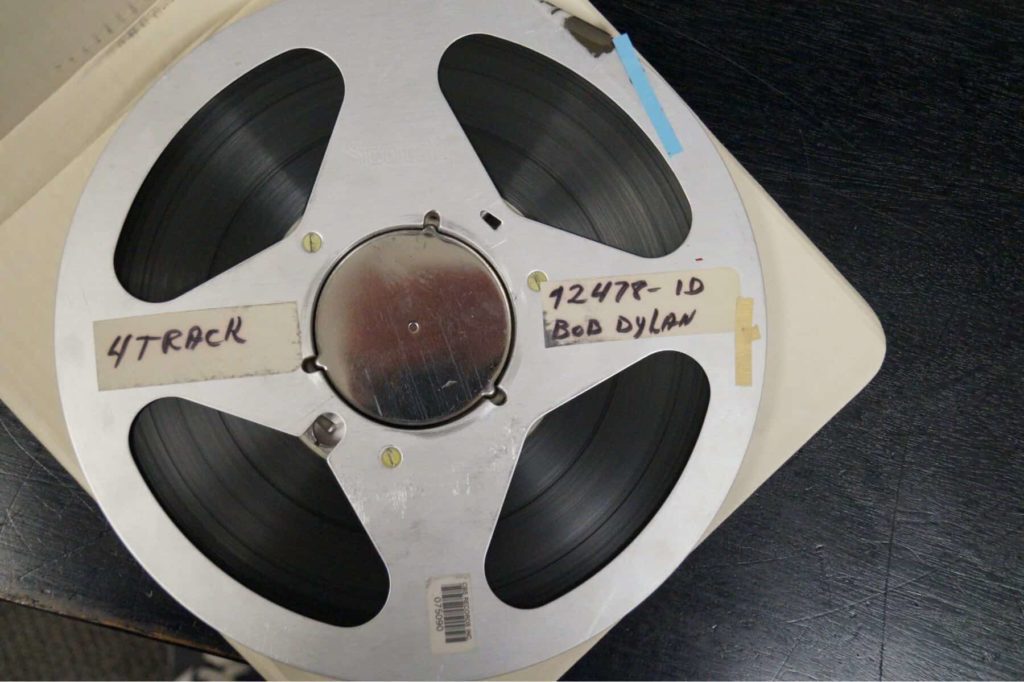© Copyright 2025 American Song Archives, LLC
Acquired by the George Kaiser Family Foundation in 2016, the Bob Dylan Archive® consists of more than 100,000 items spanning decades.

An intimate perspective of the artist’s working process can be evidenced in a vast assortment of handwritten song lyrics. Beginning with songs on the 1964 album Another Side of Bob Dylan, much of the material is heavily revised, annotated and often includes omitted material. Highlights include various drafts of many of Dylan’s creations, along with a raft of lesser-known song lyrics and fragments.
“For years rumor circulated among Bob Dylan enthusiasts of a legendary secret archive including notebooks that many hoped would reveal how Dylan wrote some of his most iconic songs. In this case the legend happens to be true.”
Denver Nicks – Time Magazine
The collection also includes essays, poems, liner notes, correspondence, autobiographical bits and philosophical musings.
Many of these are associated with Dylan’s mid-1960s efforts while others trace the artist’s work, changing attitudes and personal activity. Another major section of the archive contains notebooks and correspondence. Recording session reports, contracts, sheet music of Dylan’s songs and scores of photographs also populate the collection.
Astoundingly, master tapes of the artist’s entire musical catalog and hundreds of hours of film and video material are in the collection, as well as the film originals of Murray Lerner’s Festival! (1965), D. A. Pennebaker’s Don’t Look Back (1967), Dylan’s (with Howard Alk and Pennebaker) Eat the Document (1971), Dylan and Alk’s Renaldo & Clara (1978), Martin Scorsese’s Bob Dylan: No Direction Home (2006) and a host of music shorts and videos.
Following on the heels of Tulsa’s relatively recent acquisition of the Woody Guthrie Collection, Bob Dylan’s archive stands to make the city an essential location for conducting scholarly popular music research and generating artistic activity. This is fitting, as Guthrie was a significant early inspiration for and influence on Dylan.
Dylan’s long and continuing artistic career strides an ever-changing American environment that touches on many disciplines, and this collection provides a rich source of material for scholars of popular music, film studies, American studies, history, sociology, political science and cultural studies. Continued biographical, literary and musical research on Dylan will depend on access to this collection by scholars from around the world, and we can anticipate the steady creation of papers, monographs, colloquia, symposia, conferences and classroom studies emanating from this collection.

The examination of “Chimes of Freedom” lyrics scrawled on hotel stationery and dotted with cigarette burns. The dissection of Dylan’s decision to transition from acoustic to electric. The analysis of correspondence between Dylan and beat poet Allen Ginsberg. Each of these are examples of the vast amount of information waiting to be unearthed and research waiting to be conducted.
“And it is a living monument: an entrancing, immersive, take-you-by-the-lapels destination that doubles as a campus for learning and exploring.”
Douglas Brinkley – Vanity Fair
While the Bob Dylan Archive® is not open to the general public, materials in the archive are available to view by approved applicants through appointment only, exclusively on-site at the Bob Dylan Center® in Tulsa, Oklahoma. Due to high demand, access to the archive will only be granted to individuals with qualified research projects. Research requests are on hold until Fall 2022.
If you are interested in conducting research at the Bob Dylan Archive, please submit the form below:

“Our intention is not to explain Dylan. If anything, it's to create even more questions.”
Steven Jenkins – director of the Bob Dylan Center
Bob Dylan Center
116 E Reconciliation Way, Tulsa, OK 74103
Wednesday – Sunday: 10AM – 6PM
918.392.3353 | info@bobdylancenter.com